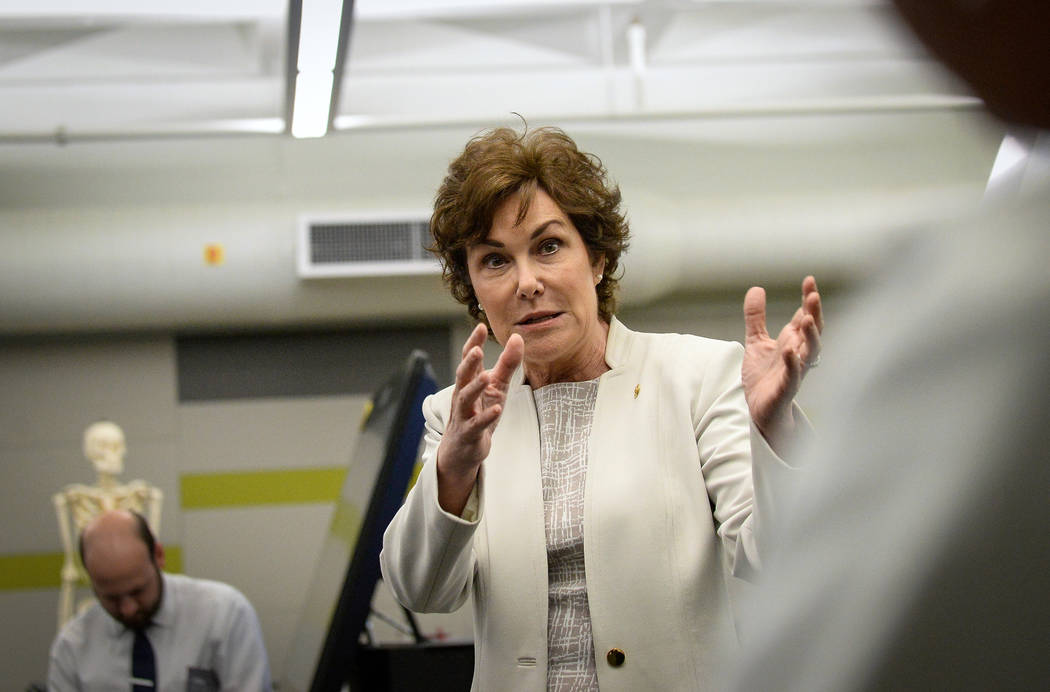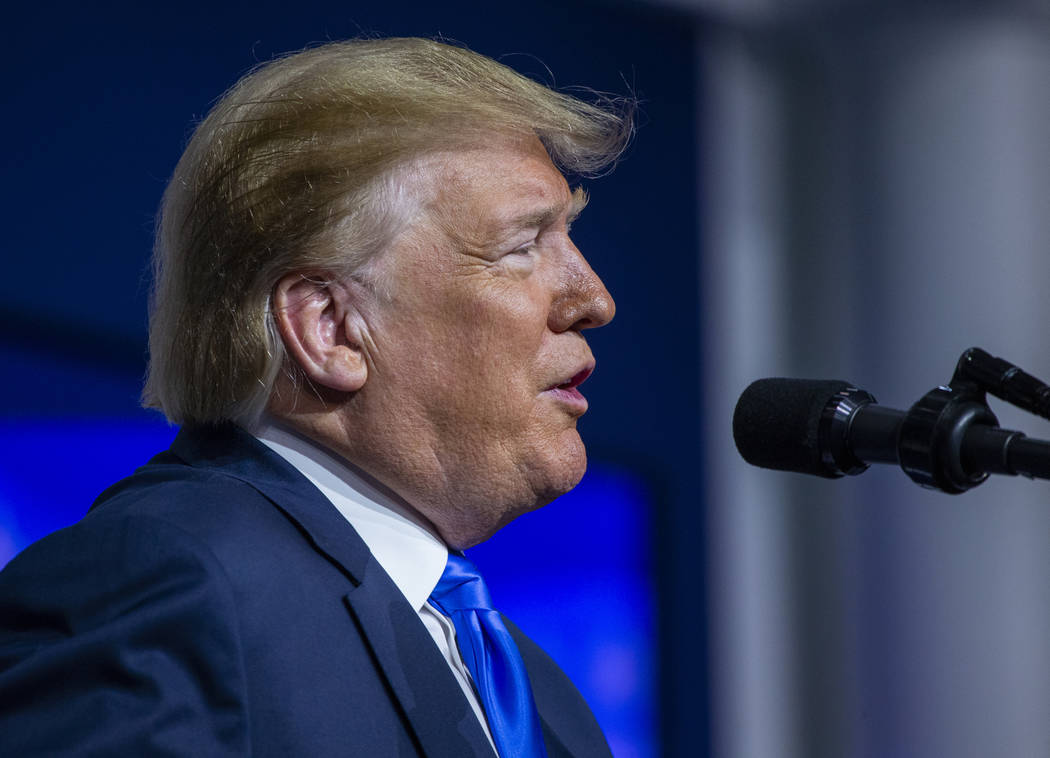Nevada lawmakers remember Oct. 1 shooting, lament lack of progress
WASHINGTON — Nevada lawmakers remembered the dark days of the Route 91 Harvest festival shooting two years ago in Las Vegas — and vented frustration last week with the lack of progress in Congress in addressing a flurry of mass shootings.
“The scars of Oct. 1 run very deep,” Sen. Jacky Rosen, D-Nev., told the Las Vegas Review-Journal in an interview Oct 1.
“These are scars that don’t go away, and the anniversary brings about all the anxiety and fears,” she said.

This is part of an ongoing series observing the two-year anniversary of the Oct. 1, 2017, shooting at the Route 91 Harvest Festival. See all of our coverage here.
Rosen was a freshman representative when a gunman opened fire on the country music festival, killing 58 and wounding hundreds in the worst mass shooting in modern U.S. history.
Like other Nevada lawmakers, she remembers the heartbreak the city endured and the courage and help of residents who ran headlong into gunfire and did all they could to help victims.
After the shooting, a woman waiting to donate plasma for the wounded told Rosen: “Please take my blood. It is all I have to give.”
“I can’t tell you how that made me feel,” she said.
Democrats and Republicans, senators and representatives alike, swarmed to Las Vegas, helping in hospitals and helping the city and state law enforcement obtain federal funds for the investigation and overtime costs incurred by the unforeseen attack.
But in the two years that have passed, Congress has not passed a flurry of gun control bills filed after the Las Vegas shooting and the many others that followed.
The Democrat-controlled House has passed gun bills that would require background checks — the same kind of checks conducted by licensed dealers today — for private-party sales. The Senate has refused to take up the bill.
The National Shooting Sports Foundation said the firearms industry is working on real solutions to make communities safer. “The fact is that anti-gun groups want you to think there are no background checks for people buying a gun. That is just not true,” the group said in a statement.
The National Rifle Association also opposes strengthened or expanded background checks.
President Donald Trump has directed the Justice Department to regulate “bump stocks” that increase the rate of fire of semi-automatic rifles. But Congress has not passed legislation to outlaw the devices, which were used in the Las Vegas shooting.
Trump also endorsed strengthened background checks after the Parkland, Florida, school shooting, but he later retreated from that position in favor of addressing mass shooting through mental health legislation.
Several states, including Nevada, have passed laws to ban devices like bump stocks, limit access to weapons and strengthen background checks.
Rep. Dina Titus, D-Nev., has filed legislation to ban high-capacity ammunition magazines, bump stocks and other devices.
Bills to expand background checks and outlaw assault weapons are backed by Titus, Rosen, Sen. Catherine Cortez Masto and Reps. Susie Lee and Steven Horsford, all Democrats.
Rep. Mark Amodei, R-Nev., backed Trump’s regulatory change on bump stocks but has remained with his fellow House Republicans in opposing gun control legislation, including bills to expand background checks.
Still, Titus said Congress is “not powerless in the face of the gun violence epidemic.” They note growing public sentiment to tighten laws, even among gun owners.
Rosen said it is time for Senate Majority Leader Mitch McConnell, R-Ky., to take up House-passed gun bills and send them to the president for his signature.
Titus said, “It’s far past time for President Trump and Senator McConnell to stop acting as such to start working in good faith to help save lives.”















